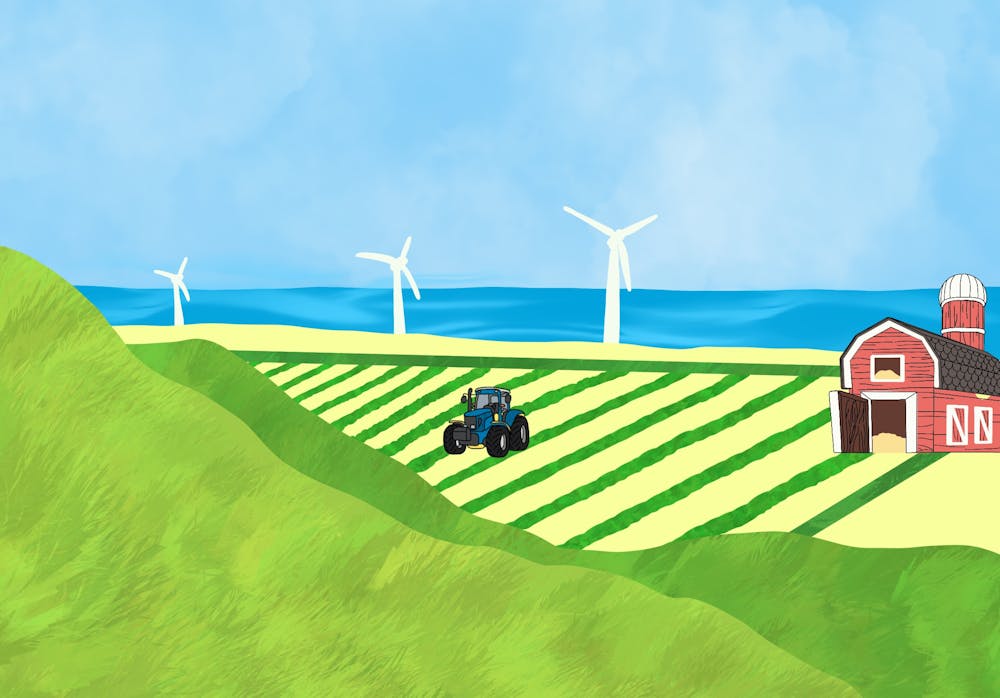In response to the growing effects of climate change along Virginia’s coast, the University launched the Coastal Futures Hub in September. The hub is an initiative aimed at collaborating directly with rural populations to provide them with the necessary tools to counter climate change.
Climate change is greatly affecting coastal Virginia — with rising sea levels, storm surges and soil salinity changes directly impacting the daily lives of and having long term repercussions for those in rural areas.
As part of the National Science Foundation's Coastlines and People program, various professors, researchers, scientists, local community board members and the greater community will contribute to the research and application of the Coastal Futures Hub.
The initiative is funded by a $5 million NSF grant and seeks to combine scientific research data with the goals and daily practices of rural coastal communities to provide agricultural and economic protection from climate change. Additionally, the hub aims for scientific research to influence and aid in the implementation of future policy pertaining to the environment within these local communities.
Larry Band, co-principal investigator of the Coastal Futures Hub and environmental science professor, discussed the importance of a holistic approach to climate change in terms of coastal Virginia.
“When we wrote the proposal, the idea was to see what are the threats of climate change and who is actually impacted by it,” Band said. “Very often you’ll find … communities of color may be more directly and severely impacted by environmental hazards.”
Since 2006, the University’s Coastal Research Center has served as a marine field station on the Eastern Shore of Virginia and the southern end of the peninsula. The research center hosts the Virginia Coast Reserve Long Term Ecological Research program, which studies the coastline and its dynamic changes and resilience in the ecosystem.
The Coastal Research Center will provide the scientific information for the Coastal Futures Hub through this program, climate layers and hydrology maps. Additionally, the research center provides a connection to the local communities on the eastern shore, which is one of the most important facets of the Coastal Futures Hub according to Cora Baird, site director of the Coastal Research Center.
Baird plays an extensive role in involving community members and leaders in the discussion of how the project should be implemented. She connects community members with outside researchers in a way that facilitates discussion and bridges the gap of knowledge between the community and science.
“The [community members] needed to be busted out of the broader impact section,” Baird said. “They needed to be a core consideration [in] how we do research and how we study coastlines, that we need to do the environmental and social together or we won’t make any progress.”
When it comes to climate change and the environment, there is a human dimension that must be accounted for in order for research and scientific discovery to have an impact, Baird said. This is the main view that drives Baird and the Coastal Future’s Hub’s interest in involving the community from the outset.
Karen McGlathery, leader of the Coastal Futures Hub and environmental science professor, explained how interdisciplinary and collaborative work provide a better method for combating climate change.
“I’m really passionate about bringing people together from different points of view,” McGlathery said. “Different disciplines work together to come up with solutions to climate change impacts.”
McGlathery also discussed the three legs supporting the hub project — environmental science, social science and social equity. These three attributes combine to create the Climate Equity Atlas, an interactive resource that aims to provide local communities with the accurate and precise resources they need to adapt to the rising sea levels and erosion on the eastern shore.
Through the atlas, equity and science will combine directly to produce a tool for the community to use as its members continue their daily lives within a changing environment. Because the atlas concerns the living conditions of the community, it is important to have the community involved in the making of the atlas, McGlathery explained.
“The real asset behind this program is that by having the community at the table navigating our decision-making and really taking control over this atlas from the beginning, it gives us the chance to see the social and environmental layers on top of each other,” Baird said.
The initiative starts with asking community members questions about where they feel the impact of climate change and what they need help with in terms of environmental inequity. From here, the researchers and data scientists will gauge which resources and knowledge can best address the community’s issues.
The five-year-long project will end with the creation of the atlas as a decision support tool, which the community can take over in order to better inform their daily lives. Additionally, the tool will help to direct local legislation and decision-making pertaining to agriculture, the environment and pollution.
Currently, the project is in its early stages — which mainly consists of discussing and meeting with community members to establish an agenda. As one of the first of its kind, the Coastal Futures Hub demonstrates a bridge between local communities and science that could play a role in influencing other projects in the future.







